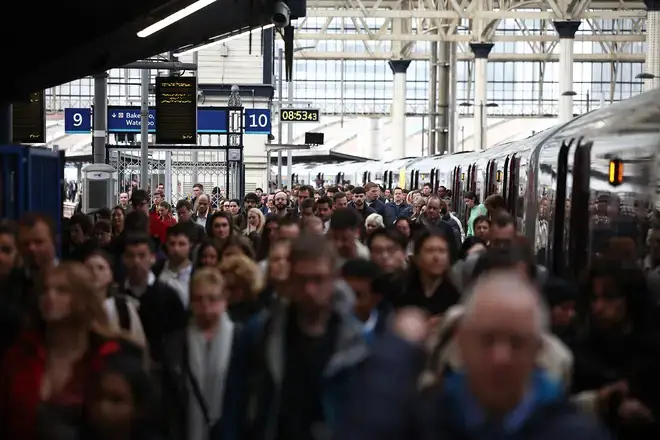Reliability on Britain's railways has reached a record low with more than one in 25 services cancelled in the past year.
One in 25 services were cancelled in the past year, as operators suffer from industrial disputes and staffing shortages.
More than 217,000 services were axed last year, Office of Rail and Road reports.
A further 165,000 train journeys were part-cancelled – meaning they cut at least one of their scheduled stops.
This is the worst reliability performance of Britain's rail services in figures dating back to March 2015.
Journalist Tony Miles, of Modern Railways magazine, attributed the high number of cancellations to "a mixture of industrial relations and staff shortages".
Miles said operators such as Northern Rail are suffering poor reliability on Sundays as they rely on train crews working paid overtime on those days, which some are refusing to do.
He claimed resolving this would involve the Government "looking again at whether significant recruitment should be allowed, to do away with the need for overtime and rest day working".
But he expressed doubts that the Treasury is willing to spend money on "a massive recruitment exercise that won't start to show benefits for five or 10 years".
He also warned that retirement rates in the industry are higher than predicted because many employees stop working once their pension pots are "full".
"Somebody can give three months' notice to leave, but they may take 12-15 months to replace, and that's still something the industry is trying to catch up on," Miles said.
Over the past 12 months, reliability was particularly poor in the four weeks to December 7th, when the network was affected by three named storms.
A Department for Transport spokesperson said: "This Government has inherited a broken railway system, characterised by frustrating delays and levels of cancellation that have left people losing faith in our transport system.
"That is why we've kicked off the biggest overhaul of the railways in a generation, bringing services back into public ownership and putting passengers at the heart of everything we do.
"We have been clear we will not tolerate poor performance, and ministers continue to meet with leaders of the worst performing operators to address unacceptable services and demand immediate action."
The operator with the highest cancellations score in the year to February 1st was CrossCountry at 7.36%.
CrossCountry reduced its timetabled services between August 10th and November 9th 2024 in an effort to limit on-the-day cancellations, and has been put on a remedial plan to improve its performance.
Avanti West Coast had the second highest cancellations rate, followed by Northern Rail and Govia Thameslink Railway.
The best performing operator was Caledonian Sleeper – which runs overnight services between London and Scotland.
The figures do not include services removed from timetables as late as 10pm on the previous night – known as P-coding – which is done more by some operators than others.
A CrossCountry spokesperson said: "Over the last six months we have implemented a number of changes across the service that have reduced cancellations and improved punctuality.
"However, we recognise that there is more work to be done to ensure we consistently meet high service standards, improve performance and provide a more resilient service.
"We continue to work with the Department for Transport and Network Rail to deliver further improvements for our customers and the communities we serve."

